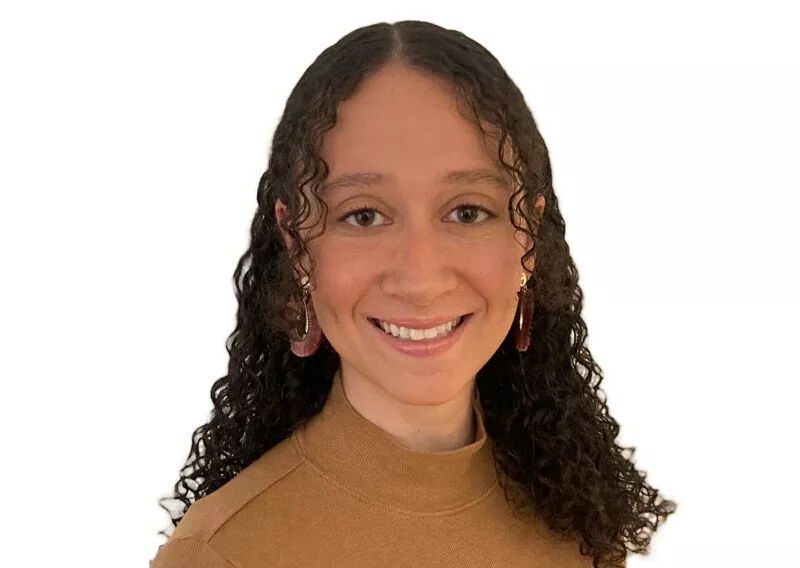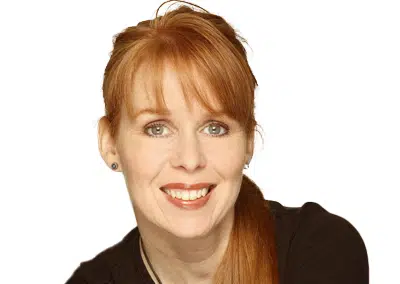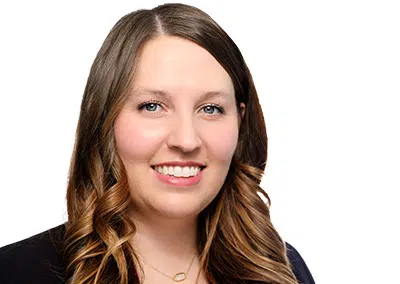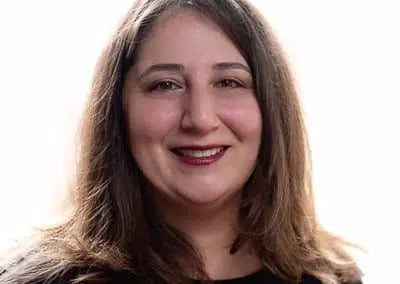
Questions About Therapy:
How Much Does Therapy Cost?

Dr. Lisa Marie Bobby is a licensed psychologist, licensed marriage and family therapist, board-certified coach, AAMFT clinical supervisor, host of the Love, Happiness, and Success Podcast and founder of Growing Self.
Most people thinking about therapy want to know how much therapy costs. Understandable! But the actual cost of what you pay for therapy is not the whole story. Not even close.
In addition to the cost of therapy itself, there are some other important considerations that can make a huge difference for you in terms of the outcomes — especially if you’re seeking therapy for personal growth. Most people don’t think about the fact that, above and beyond the cost, therapy needs to be valuable.
Before I became a therapist, I learned this the hard way. I’ll share this story with you, in order to help you get more clarity about the costs of therapy, and the value.
When I was barely 13 years old, I rode my bike to 7-11 and bought a pack of Winstons. It was the late 1980s in Roanoke, Virginia, so when I laid my four quarters down (half expecting to be arrested), the lady behind the counter didn’t blink an eye, much less ask for ID. I walked out with that pack of cigarettes feeling like a badass, and ready to join the cool crowd.
It totally worked. Within days of lighting up for the first time, I was officially “in,” smoking behind the mall with the coolest kids in my class. Happily unaware that a deep addiction to nicotine was taking root in the process.
A decade later, smoking didn’t seem so cool. It felt gross. My lungs ached. I smelled. Worse, I’d married a wonderful man who didn’t smoke and he thought it was gross too. I wanted to quit, but I couldn’t seem to do it by myself. I tried so many times to quit, and felt despondent that I’d ever be able to make the change I wanted so badly to. It was impacting my self-esteem, and I felt like a mess.
There were other things I wanted to work on too, that I was struggling to change. I was disorganized, I had a hard time following through with things. I tried everything to help myself make positive changes. I read self-help books, listened to guided meditations, tried the cold-turkey method…. And always started smoking again. I felt trapped. I became increasingly convinced that I needed help: Maybe I needed therapy?
How Much is Therapy?
Almost immediately after that thought was, “But how much is therapy?” Yep, I was in the same spot you’re in now: I had personal things I really wanted to work on, and I hadn’t been able to get any traction on my own. I wanted to get a therapist. But I worried about the cost of therapy. At that point in life both my husband and I were in that weird early-to-mid-twenties “what should I do with my life” space of dissatisfied underemployment. I was working as a waitress, and money was tight.
But this smoking thing was killing me, slowly, but literally. I had to do something, and felt incapable of quitting smoking on my own. So I heaved open the 4 inches thick phone book (this was still the mid-nineties), made some calls, and scheduled an appointment with the first Denver therapist who called me back.
She understood my financial limitations, so she offered me a sliding scale rate for therapy of $85 an hour, well below her normal rate. It was a financial stretch, but I was grateful to find a therapist who had availability and who offered sliding scale rates so I made it work: Paying her in cash from my waitressing tips.
How Much Therapy Costs If It Doesn’t Work.
Therapy commenced: I smoked on the way over to her office, flicking my ashes out the window. Since time management was such a struggle for me I sometimes got there late. During our sessions, I told her about my frustration with my inability to quit smoking and she listened sympathetically.
She was a licensed clinical social worker trained to treat adults recovering from childhood trauma, so she wanted to talk about my parent’s relationship and what my family of origin experience was like. We talked about my traumatic break up in high school. Eventually, she suggested we try EMDR techniques (a type of trauma treatment). Knowing absolutely nothing about therapy, I figured she was a professional therapist and must know what she was doing, so I agreed.
One problem with that: I never experienced childhood trauma.
Even though I paid for many sessions of EMDR for the treatment of non-existent trauma that were, in retrospect, probably not the most helpful course of action for me, it was not a bad experience. Happily, therapy was not a total waste of time and money. She was a nice lady. With her help, I gained some important insights about myself and my family.
Therapy needs to be valuable.
My mom was disorganized, and therefore so was I. Good to know. I realized that I’d started smoking as a way to cope with early adolescent anxiety and to find a social identity, community and friendship. I also realized that my relationship with my husband needed some work, and she helped us get connected to a really good couples therapist. By the time it was over, therapy cost me hundreds of dollars and a year of my life.
And yet, despite connecting all those dots, at the end of the day…. I was still a disorganized smoker. It wasn’t until several years later, through an experience with a different therapist (who provided me with coaching rather than insight-oriented psychotherapy. More on the difference between therapy and coaching here.) that I was able to kick the habit for good.
I know that we’re here to talk about how much therapy costs, and we will. But I wanted to share this personal story with you in order to illustrate the significance of a different idea to consider: How much is therapy worth?
Not All Therapy Is Valuable
At the time, I had no idea that there were different kinds of therapy and different kinds of therapists, and that not all therapy is the same. I was not educated enough to understand that different types of therapy are useful for certain situations (and not others), and was not empowered enough to say to my therapist, “but how is this going to help me quit smoking?” when she wanted me to talk about my critical father, or how I felt when my boyfriend broke up with me in high school.
Therapy with her was relatively inexpensive, and it was accessible. But it wasn’t the right kind of therapy for me, specifically, at that time of my life. So, how much does therapy cost? If you’re with the wrong therapist, no matter how much you pay for it, (or even if your insurance covers therapy and you don’t pay for it at all), it costs too much.
The cost of therapy is incurred in more than dollars and cents. Not getting the right help at the right time and continuing to struggle and suffer carries a cost. Ineffective therapy has a cost, too. The time, the energy, the frustration, continuing to experience crappy situations in your life, struggling with self-love, not being able to create better outcomes for yourself, having negative impacts on your relationships, continuing to feel unhappy… how much does that cost you?
The opportunity cost of getting involved in the wrong kind of therapy is not often discussed. Considering what kind of therapy is actually going to be valuable is not a thought in the average consumer’s head. But it should be.
The Cost of Cheap “Therapy”
If you’re considering therapy, you’re in luck. There’s never been a better time to find a therapist. In the past decade or so, getting into therapy to work on yourself has finally become fashionable and you have so many options. Forget schlepping yourself down to a Denver therapist‘s office: You can get online therapy or online life coaching through real-time video, and some practitioners are willing to administer “therapy” by text message. This combination of cultural and technological progress means there are more therapists, offering a broader range of services, for a wider range of prices, at more convenient times of the day or night, than at any time in history.
Here’s the bad news: The exponential growth in therapy means you’re more likely than ever to waste your money on the wrong therapist. Yes, there are thousands of therapists. It’s easy to find a therapist. But finding a good therapist who provides the right kind of therapy for you has actually gotten harder.
Before jumping into therapy that’s cheap and accessible think about these things: What kind of therapy do you need? What are you hoping to get out of therapy? What are your goals for this? And here’s the zillion dollar question: How do you find the right therapist to help you? A legitimately good therapist is hard to find, and ten times more so if you don’t know what you’re looking for.
For example, when I was looking for a therapist to help me quit smoking, had I known to find a therapist trained in addiction treatment, I could have saved hundreds of dollars. AND I would have stopped smoking! (I probably still would have needed an organizational coach, but that’s okay: Different people for different purposes!)
Asking how much therapy costs is the wrong question. The right question is, “What is the value of this therapy for me, specifically?”
Every month at Growing Self, I meet new therapy and coaching clients who spent even more than I did – thousands of dollars, years of their lives – on therapy that just wasn’t right for them. Perhaps they did passive, insight-oriented talk therapy when maybe they needed a more structured, forward-focused approach. Or maybe they found a therapist through their insurance company who was so focused on mental health symptom reduction that they didn’t have time and space to have a meaningful personal growth experience.
You can find extremely expensive therapists in private practice who have fancy degrees, slick websites, play a good game on Instagram, and want to charge hundreds of dollars an hour, but they still might not be the right therapist to help you achieve your personal goals.
At the same time, we can’t assume that “cheap” therapy is not “effective” therapy. You can find extremely low-cost therapy at a community mental health center, or by going through your insurance company, or through a college counseling center, and connect with a fantastic clinician who really helps you heal and grow. If you are in need of mental health treatment and seeking low-cost therapy that would be my recommendation: community mental health, college counseling centers, or get a list of in network providers from your insurance company (if you have insurance).
I personally would never encourage a friend or family member to pursue some text-based or email-based interaction promoting itself as “therapy” under any circumstances, but especially when there’s a lot on the line, like a marriage, a career, or the difference between wellness and despair.
Effective therapy is, by definition, expensive in the sense that it requires dedicated time with a highly qualified, highly educated, professional therapist who can spend enough time with you to understand you and guide you through a growth process. Fancy venture capitalists and savvy entrepreneurs are working feverishly to find ways to automate and “scale” this experience for a low monthly fee, largely by removing as much human interaction from the equation as possible. But this is not for your benefit, it’s for theirs. It’s also not therapy.
Therapy Rates at Growing Self
I do understand that money matters. I pursued therapy early in my life when I worked as a waitress in a diner, and it was a stretch financially. Therapy needs to be attainable. Here at Growing Self, we believe affordable therapy should also be meaningful, valuable, high-quality, and evidence-based therapy that leads to positive outcomes for you. Our rates are reasonable, ranging from $75 to $170 per session. (I’ll explain our prices in more detail below.)
But if you take nothing else from this article, I hope you hear this: Asking “how much does therapy cost?” is the wrong question. You should not choose a therapist on cost. The right question is, “What is the value of this therapy for me, specifically?”
You want the RIGHT therapy. Valuable therapy. Therapy that actually works and does something for you. You deserve good therapy.
Here’s how to find it.
Let’s Talk.
Schedule a Free Consultation Today.
The Cost of Using Insurance for Therapy
A few years ago, my husband and I bought a house. It needed a little work, so we started tackling projects one by one thinking about what would make the place nicer, but within our budget and with a minimum of hassle. Our goal was not to spend years remodeling.
Could we have torn out the back of the house and tacked on an addition? Could we have gutted the kitchen and completely changed the floor plan? Sure. But why? Painting the place, updating the appliances, replacing the flooring and doing some landscaping actually made a huge difference.
We made some positive changes and then moved on with our lives, enjoying our better (not perfect, but better) home. (And wound up selling it for a healthy profit too).
What does this have to do with the cost of therapy??
Making a few targeted, lasting, and impactful changes in strategic areas is what most people actually need from therapy. They don’t need to tear apart their lives and rebuild from the ground up, or do major renovations. Rather, they have few bad habits they’d like to break. They’d like to be more vulnerable in relationships. They want to enjoy more love, happiness and success.
Like me: I wanted to quit smoking and be more organized. I didn’t need to heal from deep, dark trauma or spend years rehashing early childhood experiences in order to understand why I am the way I am.
Here’s the problem: Most therapy is designed either to address specific mental health issues like depression, anxiety, or trauma (which may or may not be your “issue”) or do a super deep dive into potentially years of introspective psychotherapy, whether you need it or not.
Let’s start with therapy that’s covered by insurance. If you’re fortunate to have a job with good benefits, this may be the cheapest kind of therapy you’ll find, even if you’re required to cover the copay. Before your insurance company will pay for therapy, however, you’ll need a diagnosis. Common mental health diagnoses include anxiety, trauma or major depressive disorder.
Most therapists who are in-network with insurance specialize in treating one or more of these diagnoses, because that’s what they’re getting paid to do by the health insurance company. (Provide treatment).
If you’re dealing with a mental health condition, this is the right way to go. You can and should get effective, targeted treatment and your health insurance should pay for it. It is very difficult to make positive changes in yourself and your life if you have an untreated mental health condition — this is always the place to begin.
But many people seeking therapy to work on themselves, do some self-improvement or personal growth work, accept who they are, learn how to achieve their most ambitious goals, or have better relationships do not meet the criteria for a mental health condition. They’re not sick. They don’t need “treatment” for symptom reduction. They just want to work on themselves and make positive changes.
So, how does using your insurance for therapy work if you don’t have a diagnosable mental illness? What if you’re simply looking to work on yourself and improve your life, which is already pretty good?
Here’s a disturbing thing about the mental health and the medical model: If your therapist takes insurance, they must give you a diagnosis, even if you have no serious problem to diagnose, and are not experiencing “symptoms.” If you’re thinking, “wait, that sounds like insurance fraud…” you’re right. (Cringey, and uncomfortable to think about, but unfortunately true).
Furthermore, if you’re working with a therapist who specializes in clinical mental health and is getting paid by a health insurance company to “treat” you, they need to document the fact that they’re doing so in their notes, and in their treatment plan.
So, for example, you think you’re there to re-evaluate your relationship with your mother and work on setting healthy boundaries. But your in-network therapist needs to give you a diagnosis. What diagnosis? And how does that impact your work with them?
If your therapist is telling the insurance company that you meet criteria for depression, they need to use techniques and interventions designed to treat depression with you, even if your core issue is not depression. (Because an insurance company auditor can ask to see their notes and a treatment summary, in order to ensure that they are in fact, doing what they claim to be doing with you.)
If you’re not there for depression treatment there’s a good chance that you will wind up like I did, paying a therapist to treat problems you don’t have. (This can be especially risky if you want to use insurance to cover marriage counseling).
Still other therapists, often paneled with insurance companies, but sometimes private pay too, specialize in certain types of treatment and use the approaches that they are comfortable with, with every client, no matter what the client really needs. That’s what happened with my therapist: I didn’t even have health insurance at the time so she didn’t have to diagnose me with anything. But she knew how to do trauma-focused psychotherapy and EMDR, so that’s what we did — whether or not I needed it.
How much will this cost you? More than it should — whether or not you pay out of pocket for therapy.
The Cost of Insight-Oriented Talk Therapy
Even outside of using insurance for therapy, you need to be cautious about getting involved with certain types of therapists, especially if you’re worried about the cost of therapy.
For example, some therapists focus on helping people with severe mental health issues and/or the legacy of childhood trauma. Both of these things are very serious and do require long-term treatment. Resolving these types of issues requires patients literally to rewire the neurons of the brain. In these cases, long-term psychotherapy is absolutely appropriate and necessary.
However, there are many therapists who enjoy doing this type of insight-oriented talk therapy, whether or not you have deep-seated issues to work through. Some therapists are quite happy to settle in for years (years!) of just talking with you week after week, turning over stones, through non-directive talk therapy or psychodynamic psychotherapy intended to “reparent” you through the simple fact of having a positive relationship with a therapist.
Going back to our house remodeling metaphor: This is deep work designed to take you down to the studs and then rebuild. It takes years, it may or may not achieve specific outcomes, and it may have nothing to do with helping you achieve the immediate goals that led you to seek out therapy in the first place.
If you need this type of gentle, long-term therapy to get support with deep stuff or a chronic mood disorder, it’s priceless. It can be very expensive, or it can be virtually free if you connect with a therapist who’s in-network with your insurance (and if your insurance policy doesn’t have a limit on sessions).
But if you have specific goals for therapy that are attached to outcomes you’d like to achieve, like feeling healthier and more energized, having more secure attachments with others, or getting better outcomes in your career, it doesn’t matter how much this type of therapy costs — because it’s not the right kind of therapy for goal achievement.
The Cost of Cheap Therapy
I listen to a lot of podcasts. Hardly an episode goes by without an advertisement offering cheap “therapy” delivered digitally. And boy, do they mean cheap. For text-based services, some companies offer you the opportunity to send text messages to a counselor for as low as $15 per session.
But what they are selling is not actually therapy.
These companies are all about volume, and getting as many people to subscribe to their platform as possible and vacuuming up any therapist with a degree — with little vetting otherwise. I’ve met therapists who have (usually briefly) worked for some of these outfits, and what I understand is that — in order to even begin to make a reasonable hourly wage — each therapist must juggle hundreds of clients at a time. How can a therapist manage all of this?
She doesn’t. She can’t.
As a client of one of these services, you may spend an hour crafting your email or text, carefully explaining the problem you want to fix. For the record, I’m all for journaling, and the act of putting your thoughts into words may be helpful, no matter what happens next.
But you should also know that on the other end, your “therapist” barely has time to read what you said, much less craft a thoughtful response just for you. If she tried to respond to each message individually, the requests for help would continue piling up, and she’d fall behind. Soon she would be fired.
Instead, many online “therapy” platforms try to provide services at scale by giving their frontline workers stacks of pre-written responses. Your therapist will skim your text, then select a prepared response that seems at least in the general ballpark of your text. If you’re lucky, she’ll tweak a few words in the message, making it appear slightly customized before pressing “send.”
This is not therapy. It’s a human-powered chatbot. As artificial intelligence improves, venture capitalists hope to fire the humans, replacing them with artificial intelligence software. That day is coming soon. I can see how outsourcing “therapy” to AI and digital humans would, in some ways, make it more accessible (and certainly cheaper). But I also believe that it’s unethical to call this type of interaction therapy. It’s not.
Calling interacting with a chatbot or exchanging emails with someone “therapy” suggests that it is the equivalent of having a personal relationship with a highly skilled, emotionally attuned therapist devoted to your growth, able to help illuminate your blind spots, and who can offer meaningful compassion as well as thoughtful growth experiences specifically designed to help you achieve your goals. That is what makes therapy successful. Structured journaling? Automated responses? Not the same thing.
The Cost of Bad Therapy
As we’ve covered, there are plenty of ways for therapy to go wrong. You can find a therapist with degrees from the best universities, whose treatment is high-quality and evidence-based. But if you don’t have the same mental health diagnosis they’re trained to treat, you might not get the results that you’re hoping for. There are also plenty of therapists who have questionable academic training, just a framed piece of paper from a diploma mill. Others do therapy by copy-and-paste. In each of these cases, you are probably wasting your money on therapy.
Bad therapy also carries a subtler cost. This is opportunity cost, the loss of forfeited time. I’ve been a practicing therapist for twenty years. Every month I meet clients who spent years in therapy that was ineffective. Others dedicated years to the false therapy of distraction, working too hard and buying too much, never healing the deep-down ache in their hearts.
For many, those were years of sadness. Time after time they found themselves in untenable relationships. Many felt trapped in careers that didn’t allow them to achieve at their full potential. They felt stuck, and often they were living in a perpetual emotional funk. Worse, many believed this cycle of attempts and failure was their own fault, compounding the sadness.
Every time I meet a person in this situation I think: How sad we didn’t meet years ago. Most of these people don’t have a mental health problem or deep-seated issues. They just needed help that was focused, goal-oriented and results-based. Unfortunately, when they tried to get help through therapy, they connected with a therapist who wasn’t really able to help them in the way they needed to be helped.
In these cases, the cost of therapy was much more than what they actually paid for it.
Let’s Talk.
Schedule a Free Consultation Today.
Meaningful, Valuable Therapy Can Be Affordable Therapy
Good therapy happens too. Good therapy can be much more valuable than the actual financial expense.
Consider the value of getting connected with a highly qualified, legitimately effective therapist who has a lot of experience in helping people just like you make targeted changes in the way they think, feel and behave? Imagine if that led to significant differences in the results you get in yourself, in your career, and in your relationships? Could you even put a price tag on what that would be worth to you?
The difference isn’t the cost of therapy. The difference is the value.
If you want a meaningful experience in therapy, it requires a real-time relationship with a therapist who can see you and hear you, and truly know you and care about you. That’s what we offer here, at Growing Self. Furthermore, we have a small team of very carefully vetted expert therapists who have specialized training and experience in helping people create love, happiness and success.
We can offer affordable rates with a fantastic, genuinely effective therapist because we have providers on our team who are at different stages of their professional development. We have highly experienced experts who have been in private practice for decades, and we have excellent, effective, early-career therapists. When you request to be matched with a clinician on our team, you’ll have the option to let us know what would be the best option for you in terms of price — but also in terms of the outcomes you’re hoping for. Then, we’ll help you get connected to the therapist who would be the best fit for you — on every level.
Meaningful Growth Work is Priceless
Growing Self is part of a growing movement in the world of therapy. We believe therapy is helpful to everyone, not just those with severe mental health problems. Nor is therapy the destination. Our clients don’t spend years on the couch, talking about their mothers. Research shows that short-term therapy models – accomplished over the span of a few months – are more effective for more people than therapy that drags on, seemingly forever. We believe that therapy should serve a purpose, and be linked to outcomes.
Another important thing to note about our practice is that many of our clinicians provide life coaching as well as therapy. “Therapy” is a catch-all term for working on yourself. But therapy — as in, psychotherapy — is technically behavioral healthcare. In contrast, coaching — life coaching, relationship coaching, and career coaching — is for the purpose of self-improvement and goal attainment. Here’s more information about the difference between therapy and coaching, if you’re interested. And, if you’d like to try a one-time “solution session” to get advice and experience an action-oriented coaching session first hand, we offer that too.
Many high functioning people who want to grow and develop healthy relationships, or work on themselves productively, get far more value out of a coaching approach than they do from therapy.
Our clients, particularly our coaching clients, seek our services for the same reasons they might pursue graduate school or hire a personal trainer, because it brings more joy and fulfillment to their lives. We help people identify discrete habits and behaviors they’d like to improve, like setting healthy boundaries, or communicating effectively. We set concrete goals, and help clients build the internal systems to attain them. Then they move on with their lives, equipped with the tools they need to create love, happiness and success.
Authentic happiness comes from our ability to build good relationships, find meaning in our lives, feel good about ourselves, live fearlessly and feel in command of our destiny. You can’t buy any of these things. But investing in good therapy or life coaching can help you create them.
At Growing Self, Good Therapy is Affordable
The good news is that evidence-based therapy is effective, affordable, and short. One of the most commonly asked therapy questions is, how long does therapy take? Research shows that, if you’re working with the right therapist and using the right approach, you should experience at least some benefit from therapy within 10 sessions. If that’s not happening, you might need a different approach. On average, our clients get what they need from therapy in around 8 to 16 sessions, depending on what’s going on.
Growing Self was founded on the belief that everyone deserves access to high-quality experiences for personal growth and being your best self. That means keeping our standard fees low. Our early career therapists charge between $75 and $115 per forty-five minute session. On the high end, our doctoral level therapists charge $170 per session. Most of our practitioners offer a sliding scale, with lower rates depending on your household income and the size of your family, depending on the therapist’s schedule and availability. Our rates are the same for coaching.
If your insurance policy covers behavioral healthcare with out-of-network providers, we can give you super bills to submit to your insurance company so you can get reimbursed. We also accept payments from Flexible Healthcare Savings Accounts. Learn more about our rates and insurance here.
A New Perspective: Truly Valuable Therapy and Coaching
I believe we’re due for a big change in how Americans think about therapy. Good therapy can be optimistic, strategic, and effective. Furthermore, many people seeking therapy have goals that would be more quickly achieved through coaching. Working with a therapist who provides coaching can provide you with a truly meaningful and productive personal growth experience. Both good therapy and coaching are rooted in the best science, they are productive, and often relatively short-term.
When all those things come together, therapy that works can also be affordable — particularly in light of the cost of not getting the right help at the right time.
Thanks for spending some time with me today, and learning about how much therapy costs. I sincerely hope that this article has not just answered your question about the literal cost of therapy here at Growing Self, but has helped you think about this differently and consider “What is therapy worth?” and “What kind of therapy is valuable for me?” Those are the most important questions!
You might be considering some of our services besides individual therapy. Here are some other articles that might be useful to you, as you’re doing your research with cost in mind:
How much does marriage counseling cost?
How much does life coaching cost?
How much does a career coach cost?
Start Therapy or Coaching With Growing Self
If you’re interested in potentially getting involved in therapy or coaching here at Growing Self, the first step is to request a free consultation meeting with one of our experts. When you submit the first request form, you can share a little about yourself and your goals for working with us. Then our small team will think about which of our practitioners would be the best fit for you based on all of your needs, including whether or not you’re seeking therapy or coaching, as well as your preferences to be matched with a more affordable or more experienced clinician, scheduling preferences, etc. (No algorithms here! Actual humans!)
Then they’ll help you schedule your first free consultation meeting with the therapist or coach of your choice, so you can meet them, talk about your hopes and goals for this, and see if it feels like a good fit for you. If it does, you can move forward with them into genuinely meaningful and valuable therapy or coaching.
If you have other questions about our services, or our pricing, feel free to get in touch. We’re here!
Respectfully, Dr. Lisa Marie Bobby and The Growing Self Team

Dr. Lisa Marie Bobby is a licensed psychologist, licensed marriage and family therapist, board-certified coach, AAMFT clinical supervisor, host of the Love, Happiness, and Success Podcast and founder of Growing Self.
Meet a Few of Our
Expert Therapists
Meet Our Team
Linda P.
M.A., LMFT
Thriving Personal & Professional Relationships
Meet Linda: a relationship expert and certified emotional intelligence coach with a unique blend of professional experience as a marriage counselor, executive coach, leadership coach, life coach, and therapist. She's here to help you understand yourself and others, improve your communication, increase your emotional intelligence, and cultivate positive relationships — both personally, and professionally.
Silas H.
M.S., LMFT
A Partner in Growth for Individuals & Couples
Meet Silas: a couples counselor, therapist, and life coach with an easy-going, humorous, and down-to-earth style that makes personal growth work both enjoyable and effective. His tireless support, encouragement, and expertise help you stay motivated to make real and lasting change in yourself and your relationships.
Talia R.
M.S., MFTC
Straightforward, Open-minded & Action-Oriented
Meet Talia: a relationship specialist whose warm, collaborative approach guides you toward deeper exploration, connection, and understanding. With her authentic and straightforward style, she can help you gain the clarity and skills to cultivate the life and relationships you desire.
Jenna P.
M.A., LPC, LMFT
Insightful, Welcoming & Productive
Meet Jenna: a supportive marriage counselor, couples therapist, individual therapist, and life coach with a friendly, light style and a great sense of humor. She uses effective, evidence-based techniques to help you build understanding for yourself and your partner, increase intimacy and connection, and achieve your most important goals.
Emily B.
M.S., LMFT
Dedicated to Your Empowerment
Meet Emily, a couples counselor, relationship coach, individual therapist and life coach with a positive, empowering approach to helping you create the change you desire. Emily believes that we each have the seeds of wisdom inside of us — and that with the right support, you can cultivate greater well-being, love, and success.
Dr. Ben J.
Ph.D., LMFT, LCMFT
Healthy Relationships, Happy Life
Meet Dr. Ben: a couples counselor, premarital counselor, individual therapist, and life coach who helps you activate your inner strengths to create better relationships and a fuller life. His collaborative, friendly style makes him easy to talk to, and his action-oriented mindset helps you get results.
Kanya D.
M.A., LMFT
Inspired Life, Inspired Love
Kanya is a licensed marriage and family therapist, individual therapist, life coach, and parenting coach with more than 20 years of experience helping couples develop deeply loving and satisfying relationships, helping parents and families thrive, and helping individuals reclaim their happiness.
Dr. Paige M.
PhD, LMFT
Kind, Encouraging & Insightful
Dr. Paige is a friendly and enthusiastic therapist who is passionate about you living a meaningful, joy-filled life based on your true values. She's a big believer in the transformative power of vulnerability — and helping you build a brave space where you can connect deeply with the people you love most.
Georgi C.
M.S., LMFT
Nurturing Healthy Families & Happy Relationships
Meet Georgi: a warm, compassionate, Arkansas-based marriage counselor, individual therapist, and family therapist who creates a safe and supportive space for you to find meaning in your struggles, realize your self-worth, and cultivate healthy connections with the most important people in your life.
Alejandra P.
M.A., LMFT
Dynamic, Transformative & Compassionate
Alejandra is a true expert at nurturing your positive transformation — helping you to find happiness in your life and fulfillment within your relationships. She will help you break free from old patterns that are getting in the way of the life you want, and then chart your pathway to achieving your most important goals.
Brittany S.
M.A., LMFT
Compassionate Care For You & Your Relationships
Meet Brittany: a couples counselor, individual therapist, premarital counselor, and a life and relationship coach with a warm, authentic, emotionally-focused approach. She works with you to build deeper connections, restore emotional bonds, and grow in your capacity to love and be loved.
Tania C.
M.B.A., M.A., LMFT (she/her/hers)
International Love, Life, & Career Coach
Meet Tania: a relationship coach, career coach, dating coach, and executive coach with a unique blend of experience, education, and training, and a nuanced cross-cultural perspective. As a relationship expert and a career expert, Tania can help you build passionate and fulfilling relationships while thriving in your professional life.
Meagan Terry
M.A., LMFT
The Relationship Specialist
Meet Meagan: an experienced Licensed Marriage and Family Therapist who specializes in helping you create happy, healthy, joyful relationships. She's an expert marriage counselor, emotional intelligence coach, premarital counselor, and dating coach who uses effective therapeutic approaches to help you create a lifetime of love.
Ronni M.
M.A., LPCC
Illuminate Your Possibilities
Meet Ronni: a career counselor, life coach, and individual counselor with a caring personality and a flare for adventure. Whether you want to embark on a new career path, work on personal growth goals, or pursue greater life satisfaction, she’s here to support and motivate you to create positive change.
Dr. Tuyet
Ph.D., LMFT
Committed to your Happiness and Success
Meet Dr. Tuyet: a highly compassionate and experienced licensed marriage and family therapist. Dr. Tuyet uses an evidence-based approach to equip you with the tools you need to build the life and relationship you really want. She will empower you to dig deep, take risks, and weather life's transitions with ease and grace.
Jennifer C.
M.S., RMFT, CCFT, RP
Embrace the Fullness of Life and Love
Jennifer is a down-to-earth therapist and life coach, who uses her 20+ years of expertise as a marriage and family therapist to help you heal your heart and your relationship. She knows we're all complex, and that building compassion for yourselves and each other is the route to true happiness.
Jesse S.
M.S., LMFT
Approachable, Direct & Warm
Jesse is a licensed marriage and family therapist who excels at creating a judgment-free environment where growth and healing flourish. He can help individuals and couples create deeper, more satisfying relationships, navigate major life transitions, manage stress, and lead happier, more fulfilling lives.
End of Members
No more pages to load
The therapists and life coaches of Growing Self have specialized education and training and years of experience in helping people achieve their personal and professional goals. We use only evidence based strategies that have been proven by research to help you get clarity and direction, have better relationships, feel happier, and design your ideal life.
This website is devoted to your wellbeing, and offers loads of free information and actionable advice that you can start using today to create positive change in your life. Browse around to meet our experts, get free advice on our blog, listen to a podcast, or take our “How Healthy is Your Relationship” quiz.
Or, if the time is right, you can schedule a free consultation with any of us to talk about your situation — and, most importantly — your hopes for your future.
Let’s Talk.
Schedule a Free Consultation Today.
Therapy Questions, Answered.
Support For Your Growth
Our expert therapists have generously created an entire library of articles, activities, and podcasts to support you on your journey of growth. Please visit our “Happiness Collections” to browse our content collections, and take advantage of all the free resources we have for you. Or, if you’d like to educate yourself about the process and logistics of therapy, please help yourself to our “therapy questions” knowledge base below. It’s all for you!
Do I Need Therapy?
Wondering if your issues going to work themselves out, or is it time to talk to a professional? Here’s how to tell when it’s time for therapy.
Therapy Works, But How?
Great therapy can feel like magic, but it’s actually not. Learn how meaningful and effective therapy works.
What is Therapy Like?
What is therapy like? Learn what happens in therapy in order to feel empowered and confident.
What Kind of Therapist Do I Need?
There are many different kinds of therapists and many different types of therapy. What kind of therapist do you need? Find out!
What To Talk About in Therapy
Not sure what to talk about in therapy? Here are some tips to ensure you get the most out of your therapy sessions.
Therapy Consultation: What to Expect
How to prepare for your first therapy appointment, and learn what to expect in therapy sessions.
Coaching vs Therapy
What’s the difference between coaching and therapy? Find out which approach is right for you.
What is Cognitive-Behavioral Therapy?
Cognitive-behavioral therapy is the “gold-standard” of effective, evidence-based therapy. Learn about CBT.
What is Talk Therapy?
How does talking about something help you make changes? Or… does it? Learn the pros and cons of traditional talk therapy.
Why Evidence-Based Therapy Matters
Effective therapy is life-changing, but some therapy is a waste of time and money. Evidence-based therapy makes the difference.
How to Find a (Good) Therapist
Not all therapists are the same. Learn how to find a good therapist (and spot the warning signs of a bad one).
Therapy For Healthy Relationships
Working with a true relationship expert helps you learn, grow, love, and be loved.
Learn about our approach to helping you build healthy relationships.
Guide to Online Therapy
Online therapy is just as effective but even easier than in person therapy. Here’s what to expect from good online therapy.
Denver Therapist
Explore your options for a Denver therapist who specializes in personal growth and healthy relationships.
How to Get a Therapist
Ready to try therapy? Here’s a comprehensive guide on how to get a therapist who is competent to help you.
Therapy Reviews
Curious to know more about what working with us is really like? Browse Growing Self reviews / “best online therapy reviews” from our clients.
How Much Does Therapy Cost?
Good therapy is priceless, but not all therapy is valuable. Learn the cost of therapy that’s affordable and effective.
Does Insurance Cover Therapy?
Yes, insurance covers therapy… but only sometimes. Learn when (and how) health insurance covers therapy, and when it doesn’t.
Help Someone Get Help
If you have a loved one who is struggling in their relationship, you can help them get help by “gifting” therapy. Here’s how…
Divorce & Breakup Recovery
Losing a relationship is uniquely painful and challenging. With the right support, you can heal, grow, and move forward. Learn about our divorce and breakup recovery services.
More Questions? Let’s Talk.
We’re available by phone, email and chat, and happy to answer any of your questions personally. Get in touch, anytime.
Start Therapy
Start your journey of growth today. Get personalized recommendations, and have a free consultation meeting with the therapist of your choice.






















